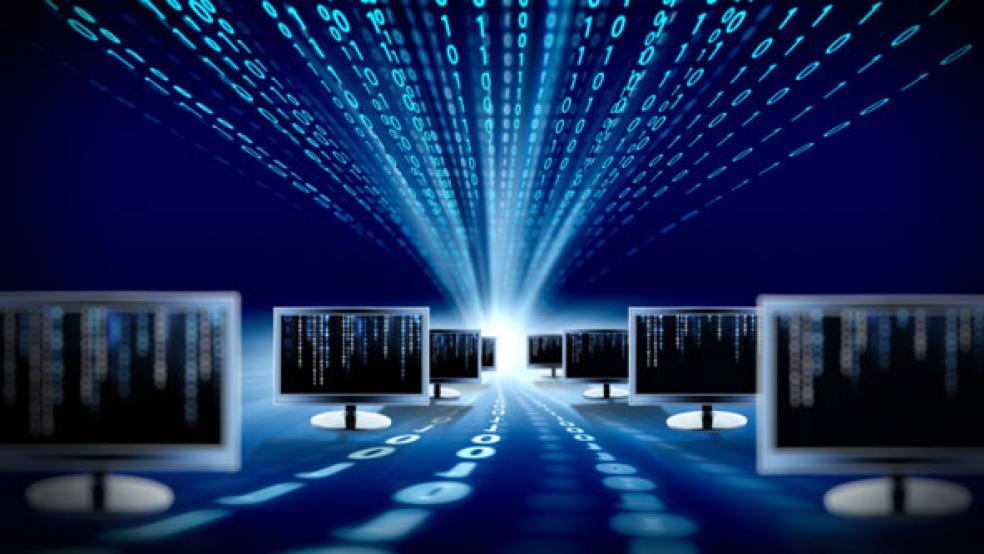The fact that you can now use your smartphone to unlock your front door, turn on the lights, adjust your thermostat, and set your DVR is all thanks to the unprecedented levels of connectivity emerging in what’s generally called the Internet of Things. Not only are we connected to the internet, but our devices and appliances are too.
That leads to new opportunities to make smarter decisions, like reducing our electricity usage.
Related: How Big Cities Mine Big Data to Solve Big Problems
The Internet of Things (IoT) has a lot to offer in the medical realm as well, but such connectivity lags far behind what’s happening with other consumer goods and electronics. A few early glimpses of possibilities in this field show there are tremendous advantages to be had if we can get past these current hurdles and establish a bio-based IoT. (A session entitled “The Internet of (Bio)things” at the upcoming Techonomy Bio conference on March 25 in Mountain View explores this question.)
To understand the current limitations in digital biomedicine, we need look no further than electronic medical records. Initially intended to usher medical information into the internet era, EMRs have largely failed to deliver. Staff at doctors’ offices across the U.S. complied with EMR initiatives by scanning rooms and rooms of medical reports and other documents, converting most of them into PDF images that can’t be searched electronically.
If this information had been digitized properly, a simple search engine would have given physicians incredible power to spot bigger patterns by looking across thousands of their own records at once.
Related: States Have a Great New Weapon Against Fraud: Big Data
A major opportunity is to create new EMRs where every test result, every smidgen of data is indexed and searchable—just as we expect of any information in the internet era. Broadening that to allow individuals to upload into their EMR data they collect themselves, such as genome sequence or activity tracker results, will make such files way more useful.
This functionality will be increasingly important as others gather more biomedical data about us. There are countless research databases of genomic information. Most are not connected to each other, but would deliver more meaningful results if they were. A massive consortium of scientists known as the Global Alliance for Genomics and Health is trying to build tools that will make such repositories interoperable. That’s a big deal.
Ultimately, if those databases connected not only to each other but also to anonymized information from EMRs, each element in that system would have infinitely more value than it does on its own. It’s that storied “network effect” that’s often discussed in internet matters: the more connections each element in a system has to other elements, the more value every individual element accumulates.
Related: How Big Data Can Stop Traffic Jams and Much More
Beyond publicly available databases, businesses are assembling massive repositories of biological information. Some companies that provide genetic tests, for example, not only deliver individual results to each patient, but also pool those results in their own databases and query across them to better understand population-level factors related to those tests or diseases. That kind of information allows providers to keep refining tests, making them more and more accurate.
There are legitimate concerns about whether potentially individually-identifiable medical information should be used in this way, but there are undeniable benefits to be had by bringing together so much data. We’ll need clever people to work on data solutions that can protect individuals even as they ensure we achieve the broader benefits from amassing all this information.
Shared genomic data, for example, can be used to determine whether a genetic variation in one person is benign or potentially associated with disease: if lots of healthy people have the same variation, it’s probably benign. It’s impossible to know what makes us genetically unique without knowing what makes us similar—and for that, we need virtually limitless information. Amazingly, with each additional genome sequenced, scientists discover new things about how we’re wired, and how we compare to each other on a genetic level.
Related: How You're Shaping the Future Through Big Data
The same is true beyond genetics. To really make sense of diverse personal and group data for biomedical use, we need to generate enough to feed sophisticated algorithms that can find patterns and notice differences. Health data needs big data. This will have real impact in understanding disease, developing more effective drugs, and identifying people at risk of developing disease so we can intervene before they get sick.
This aspect of the convergence of technology and health care will be a topic at our day-long Techonomy Bio event, March 25th in Mountain View, Calif. Click here to learn more.
This article originally appeared in Techonomy.
Read more at Techonomy:
Who Owns Your Genetic Data? Hint: Probably Not You
How Biotech Can Help Feed the Planet
How You're Hurt by FDA Genetic Test Restrictions




